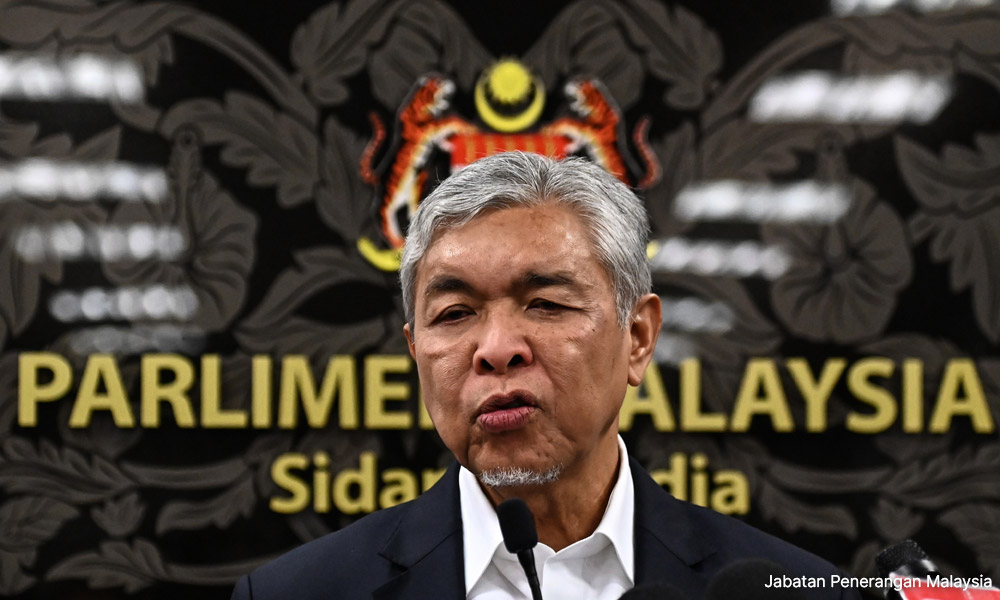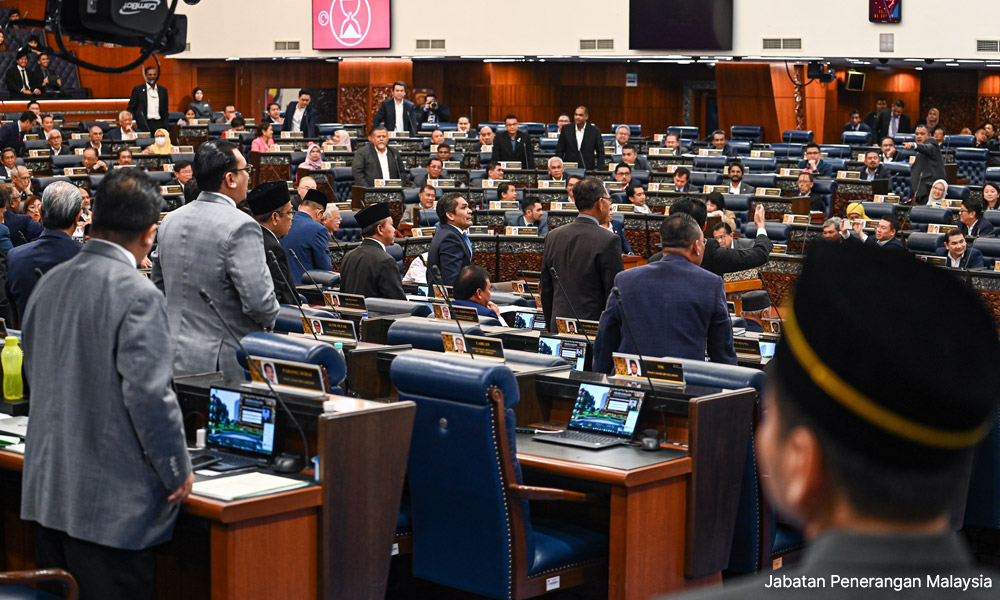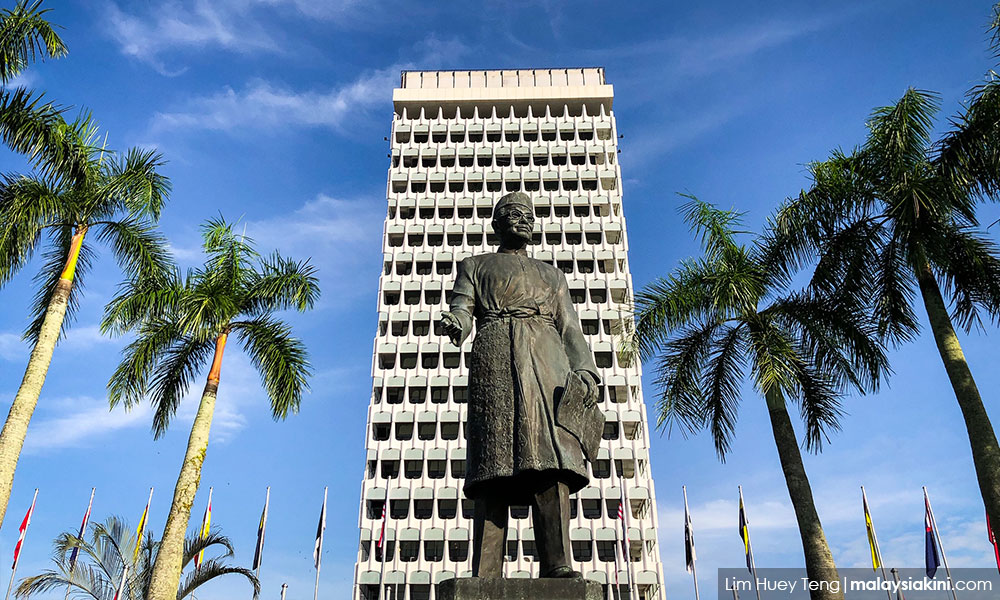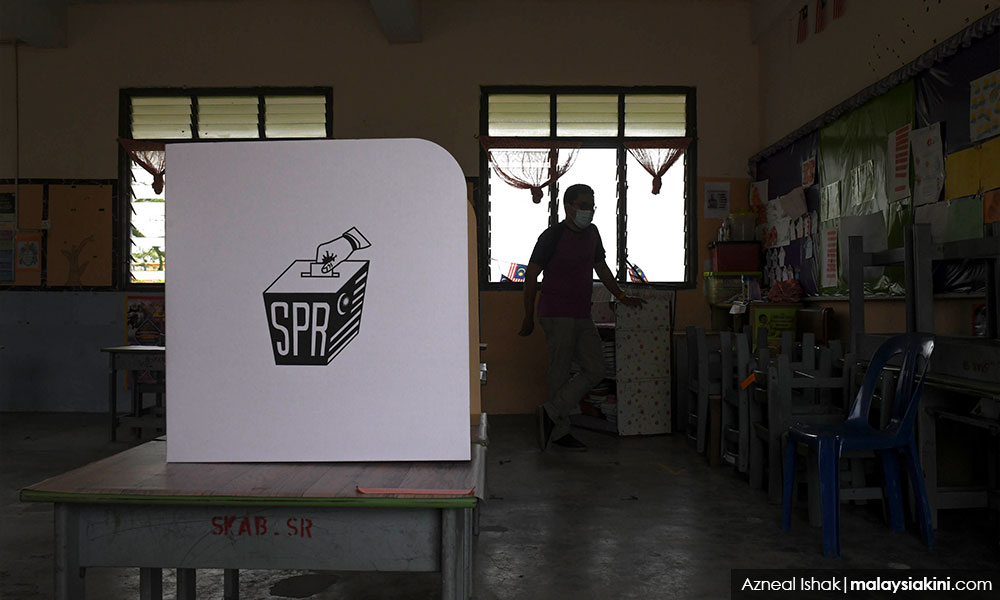KINIGUIDE | Speculation of an alleged plot to overthrow the government has sparked apprehension about the recurrence of a Sheraton Move-style coup as witnessed in 2020.
This led Deputy Prime Minister Ahmad Zahid Hamidi to propose a “special bill” to prevent the government from being overthrown in the middle of a Parliament term.
This, in turn, sparked a conversation about the implementation of a Fixed-Term Parliament Act (FTPA).
In this instalment of KiniGuide, we explore the FTPA, its implications, and if it was even what Zahid suggested.
What did Zahid propose?
Zahid did not specifically call for FTPA when he first proposed the “special bill”.
Instead, he said the bill was to mandate that a government continue administering the country until the end of the term, provided that it was formed by a dominant political party or a combination of dominant parties and has the Yang di-Pertuan Agong’s consent.

This was later interpreted by others including Minister in the Prime Minister Department (Law and Institutional Reform) Azalina Othman Said as being an FTPA.
What is an FTPA?
An FTPA is as its name suggests, an act to ensure that Parliament serves a fixed term.
This means that Parliament can’t be dissolved prematurely unless certain conditions are met.
At present, Parliament can be dissolved when its term ends five years after its first meeting post-general election.
It can also be dissolved early by the king upon the advice of the prime minister - which an FTPA would place restrictions on.
This also effectively blocks a government from calling an election at its whim, resulting in predictable election dates.
In the UK model of the FTPA, there were only two ways to call an election earlier - through a vote of no confidence in the House of Commons, or a vote explicitly in favour of an earlier election.
UK’s FTPA was, however, later repealed in 2022, on the grounds of reviving the prerogative powers of the monarch to dissolve and summon Parliament.
Would FTPA prevent political manoeuvres to oust PM?
Not likely, if Malaysia adopts a similar model to the UK’s FTPA.
Lawyer New Sin Yew said that a fixed-term Parliament is unrelated to the issue of MPs defecting.
“Having a fixed-term Parliament simply means that the prime minister won't be able to call for an early election and the Agong won't be able to consent to dissolution if the PM resigns.
“Defection of MPs resulting in loss of confidence in the PM may be the cause for the dissolution but having a fixed-term Parliament won't in itself prevent defection because defectors usually want a change of PM and government rather than a dissolution of Parliament,” he told Malaysiakini.

However, political scientist Wong Chin Huat said Malaysia’s FTPA could include a provision to exclude statutory declarations as a way of government formation, without any constitutional amendment.
The FTPA, he said, can provide for two exceptions for the prime minister to seek the king’s consent for early dissolution - when the government has lost the confidence of the Dewan Rakyat and the support of two-thirds of MPs for such a request.
He added that the FTPA would, however, need to define what constitutes a loss of confidence, suggesting it be limited to three circumstances: the passing of a no-confidence motion, the defeat of a confidence motion and the defeat of a budget (supply bill) in the second or third reading.
Lawyer Azira Aziz, meanwhile, called for a sunset clause of five years for a review of the FTPA in Parliament to see if it serves its intended purpose.
Wait, what about the anti-hopping law?
Loopholes in the anti-hopping law which allow MPs to declare support for the other side without leaving their party are unrelated to the FTPA.
Further, the anti-hopping law does not prevent parties or coalitions from switching sides en bloc.
However, FTPA provisions as suggested by Wong could make it so that such moves have to be done in Parliament through confidence votes.
Is it possible to include a clause for a fixed-term PM?
Universiti Teknologi Malaysia (UTM) associate professor Muhammad Fathi Yusof said it was not impossible to include a clause for a fixed-term prime minister.
This would require amending Article 43(4) of the Federal Constitution to state that the appointed prime minister will continue to hold his position until the end of a Parliament term unless he resigns.
Article 43(4) reads: “If the prime minister ceases to command the confidence of the majority of the members of the House of Representatives, then, unless at his request the Agong dissolves Parliament, the prime minister shall tender the resignation of the cabinet.”

However, Fathi said that the implementation of a fixed-term government or prime minister would result in flaws in parliamentary democracy.
“The amendment to this provision is not sufficient to guarantee the position of a prime minister.
“As a country that practises parliamentary democracy, basically, the position of a prime minister is still tied to the beliefs of the majority of Dewan Rakyat members.
“Even his appointment is also based on the assessment of the Agong regarding the trust held in the Dewan Rakyat,” he said.
“If a prime minister loses the support of the majority, then he is considered to be leading a minority government,” he added.
Leading a minority government would result in a difficult administration where the government would risk having its proposals and bills rejected, due to a lack of majority.
“For important motions such as the annual budget approval motion, rejection by the Dewan Rakyat will paralyse the national administration, which will eventually force a prime minister to resign,” Fathi added.
Former law minister Zaid Ibrahim and New both pointed out that having a fixed-term government also goes against parliamentary democracy.
“A fixed-term government in practice is pointless and undemocratic because governments require the majority support of MPs in Parliament.
“MPs defecting or changing allegiance does not just result in unseating the PM, it has wider implications and does not solve the issue of confidence,” New said.
One exception to fixed-term governments is countries using a presidential system like the US, where the executive and legislative are elected separately.
In such a system, changes in Parliament or Congress have no impact on the administration of the country.
Are there other options to fix our democracy?
New suggested that the government look into recall petitions - which allow voters to remove elected officials before their terms expire.
This process is used in the UK against MPs where voters in the relevant constituency can initiate a six-week-long petition to remove their elected representative.
The MP loses their seat if at least 10 percent of voters in the constituency sign the petition, which will trigger a by-election.

Meanwhile, Azira proposes a temporary arrangement to implement a law allowing any MP to table a motion to name and vote for an alternative prime minister if the sitting premier no longer holds confidence.
“This would prevent secret names submitted to the Agong with statutory declarations mid-term.
“All MPs supporting the alternative prime minister candidate shall be made public.
“The name of the winning MP who has the vote of confidence during said emergency Parliament sitting shall be the name that the Agong approves and supports as prime minister,” she said.



No comments:
Post a Comment
Note: Only a member of this blog may post a comment.